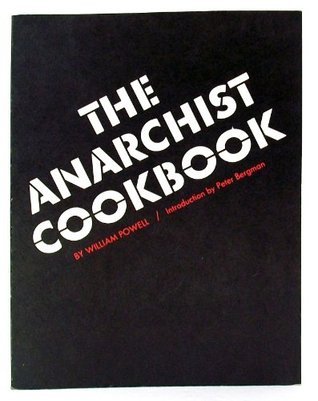
The Anarchist Cookbook
William Powell, Peter Bergman
Publisher
Barricade Books (Secaucus, NJ)
Publication Date
1/1/1989
ISBN
9780962303203
Pages
160
Categories
About the Author

William Powell
Questions & Answers
"The Anarchist Cookbook" primarily serves as a guide for individuals interested in various forms of rebellion and self-defense, including the use of drugs, electronics, weapons, and explosives. Its primary purpose is to provide detailed instructions on these topics, which are often illegal or suppressed. The book's audience is not limited to anarchists but includes anyone interested in these subjects, particularly those who feel the need to protect themselves against perceived oppression. The author, William Powell, emphasizes that the book is not for children or those without common sense, and it is intended to educate and empower readers to take action against what they perceive as injustices.
The book defines anarchy as a state of mind and essence of being, transcending mere political or governmental control. It emphasizes the individual's responsibility and the belief in human goodness. Anarchy is seen as a liberation from oppression and the creation of a society based on respect. The book argues that the 20th century's anarchy is different from previous definitions, as it's not just about freedom from government but also about personal autonomy and doing "one's own thing." It justifies anarchy through the critique of existing systems, emphasizing the need for a reckless critique of the status quo and the importance of individual dignity and revolution.
"The Anarchist Cookbook" focuses on various areas that contribute to the broader goal of anarchy. Key areas include:
- Drugs: The book discusses the use of various drugs, emphasizing their potential to disrupt societal norms and promote individual freedom.
- Surveillance and Sabotage: It provides information on electronic surveillance, sabotage techniques, and methods to disrupt communication systems, aiming to undermine state control.
- Natural, Non-lethal, and Lethal Weapons: The book covers various weapons and combat techniques, including knives, firearms, and explosives, which can be used for self-defense or to challenge authority.
- Explosives and Booby Traps: It includes detailed instructions on making explosives and booby traps, which can be used to disrupt or destroy infrastructure and symbols of authority.
These areas collectively contribute to the broader goal of anarchy by promoting self-sufficiency, challenging state control, and encouraging individuals to take direct action against oppressive systems. The book's focus on practical skills and knowledge empowers readers to resist and dismantle the structures that maintain the status quo, ultimately aiming for a society free from hierarchy and coercion.
The book acknowledges the ethical and moral complexities surrounding the practices it describes. It emphasizes the importance of treating drugs with respect, moderation, and common sense, advocating for their use as experiences in life rather than as an escape. The author also stresses the need for caution and knowledge when dealing with electronics, sabotage, and surveillance, suggesting that such actions should serve to weaken the enemy and build the morale of the liberation army. The book presents the use of force and violence as a last resort, emphasizing the importance of education and self-revolution within individuals. It also addresses the legal implications of the practices, suggesting that individuals should not rely on the state to make laws for them and that they should take responsibility for their actions.
The book emphasizes the individual's role in the fight for anarchy, advocating for self-discipline and self-liberation. It differs from traditional revolutionary approaches by placing the responsibility for change on the shoulders of all individuals, not just a select few. It emphasizes the sanctity of human dignity and the importance of revolution within oneself before attempting to change the world. This perspective is optimistic, believing in the inherent goodness of humanity and the potential for a new society based on respect and freedom. It also emphasizes practicality and pragmatism, encouraging individuals to use their surroundings and resources creatively to achieve their goals, rather than relying on dogmatic ideology or traditional revolutionary tactics.